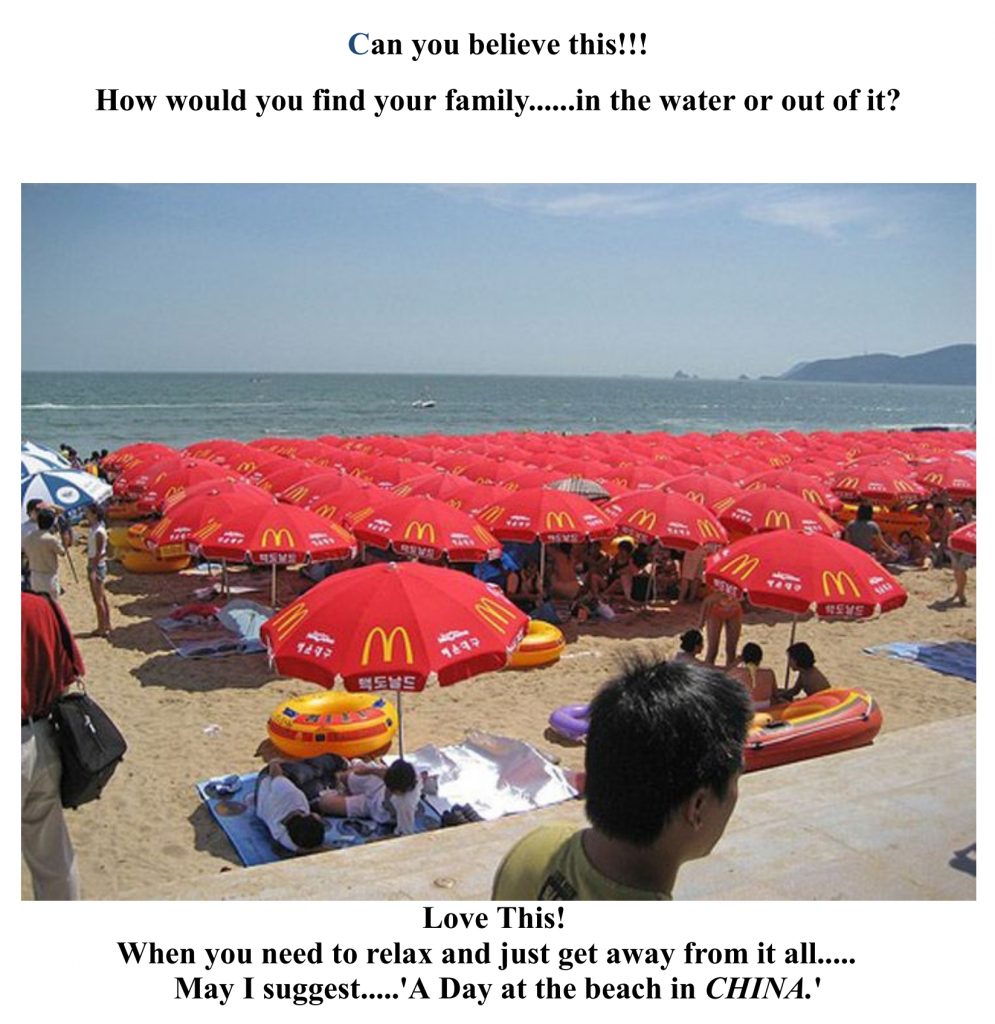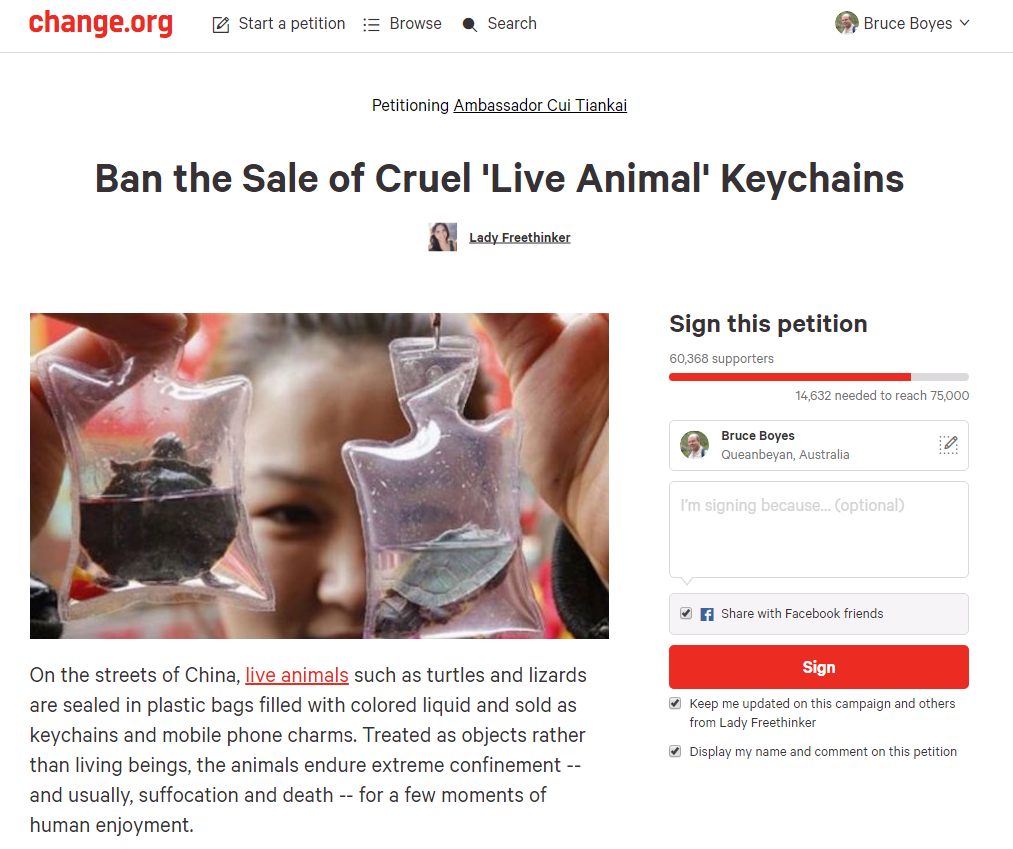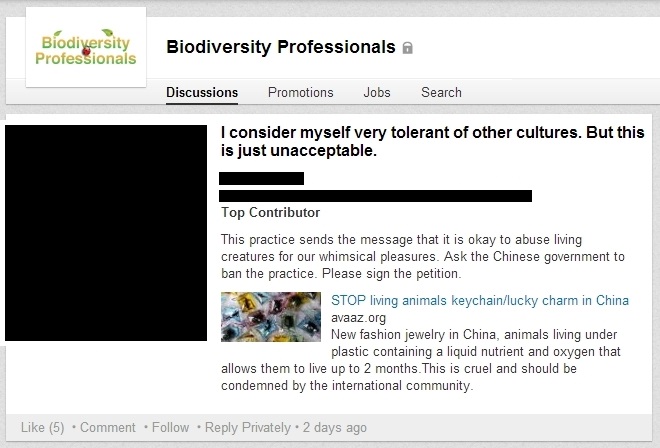
How sharing false and distorted information on the internet contributes to a divided world
On Wednesday, as I do most days, I logged onto Facebook and scrolled through my news feed. I was stopped dead in my tracks by this post that two of my Facebook friends had shared:
The posts linked to a petition on Change.org that had attracted tens of thousands of signatures:
The posts quickly attracted comments of strong condemnation, as well as further shares. The reason that the Facebook posts immediately attracted my attention is that I had seen a similar LinkedIn post and associated petition around three years ago, in December 2013. The post had been made by an administrator of the “Biodiversity Professionals” group on LinkedIn, who had also created the associated petition:
While this week’s Facebook posts said that the live animal keychains could be found on “the streets of China”, the 2013 LinkedIn post insinuated that the animal abuse being perpetrated through the keychains was a cultural practice. The associated petition then described the keychains as the “new fashion jewelry in China.”
But is this true? I have lived in China since April 2012, and before that traveled extensively in China from 2007. Despite visiting many places and interacting with numerous people, I have yet to see these keychains being sold or anyone with one in their possession. Asking around, none of my Chinese friends or colleagues has seen them either, and they have indicated that if they did see them then they would be outraged. While such keychains do appear to have existed, they are a long way from the widespread phenomena suggested by the Facebook and LinkedIn posts and associated petitions.
In sharing these posts and signing the associated petitions, people have both responded to and perpetuated negative stereotypes in regard to the behaviour of people in China in comparison to people in western countries. This adds to the creation of unnecessary divisions between western countries and China.
A further example can be found in an email I received in mid-2014. The email had the subject of “A day at the beach in China !!” and contained a series of pictures of a crowded beach. It began with the following text and picture:
 The email finished with comments suggesting that such a crowd would lead to problems, in particular unclean toilet behaviour:
The email finished with comments suggesting that such a crowd would lead to problems, in particular unclean toilet behaviour:
However, the information in the email is false. The picture above is an immediate giveaway to anyone with reasonable observational skills, with the language on the beach umbrellas being Korean, and not Chinese. An examination of features in the other photos reveals the beach to be Haeundae Beach in Busan, South Korea.
Again, in sharing this email, people have both responded to and perpetuated negative stereotypes in regard to the behaviour of people in China in comparison to people in western countries. As was the case with the live animal keychain posts and petitions, the email adds to the creation of unnecessary divisions between western countries and China.
Think before you share!
To help reduce the circulation of false and distorted information on the internet, and to help prevent the divisions it causes, please check out the validity of the information you are sharing before you share it. If it’s not true, delete it and ask the sender to advise other readers or recipients to do the same.
Also published on Medium.










